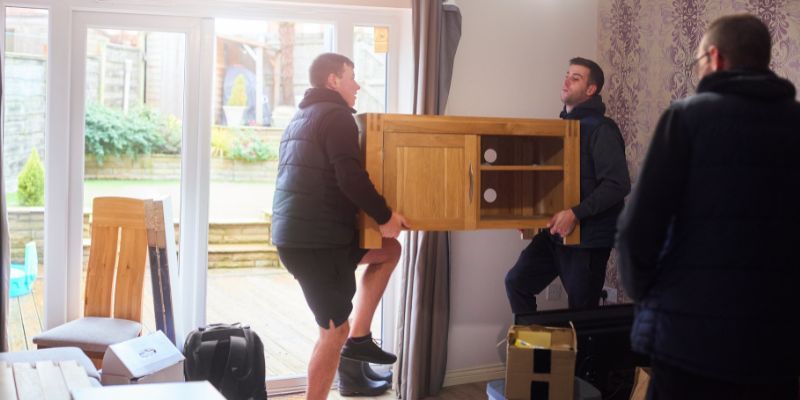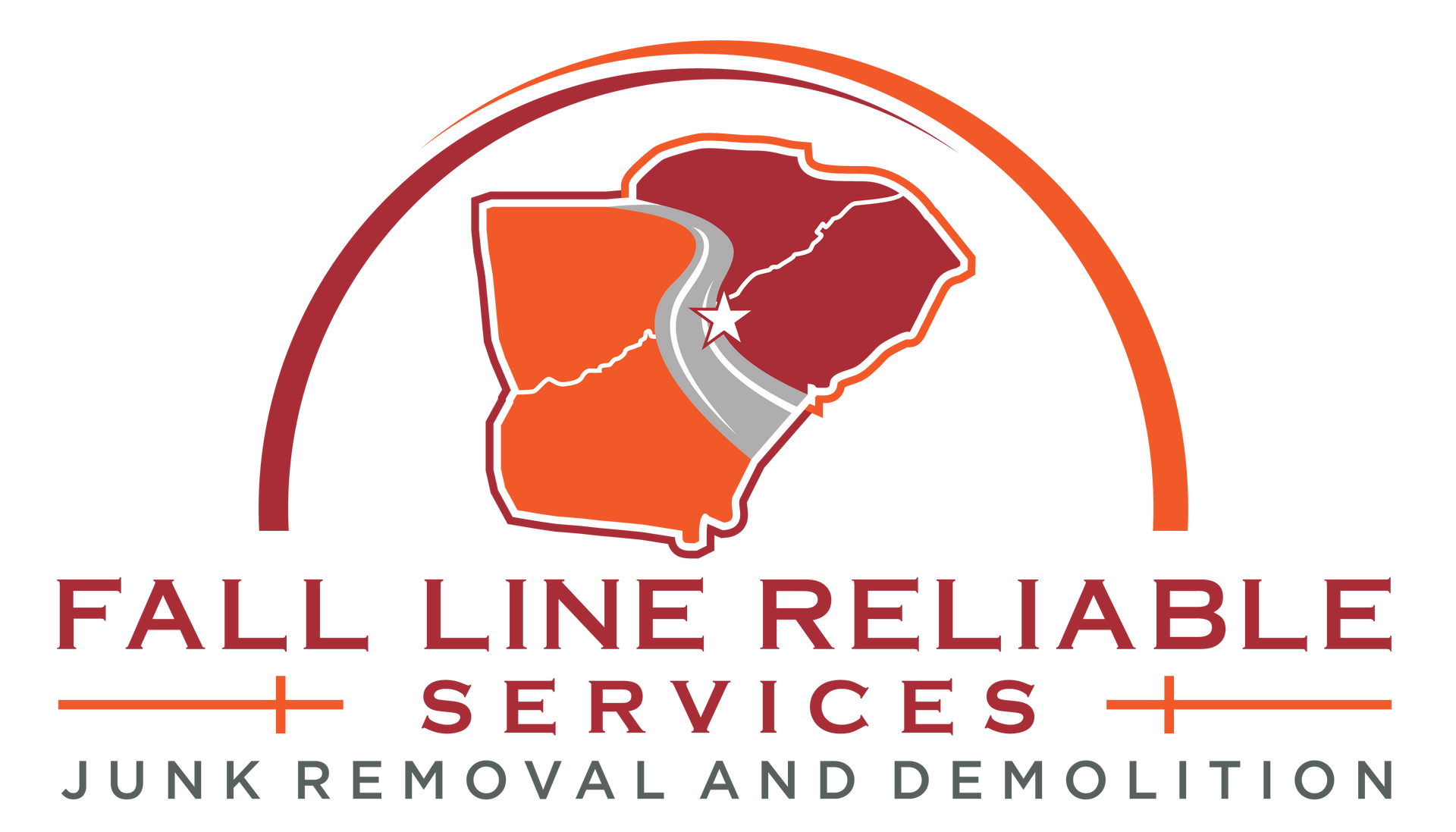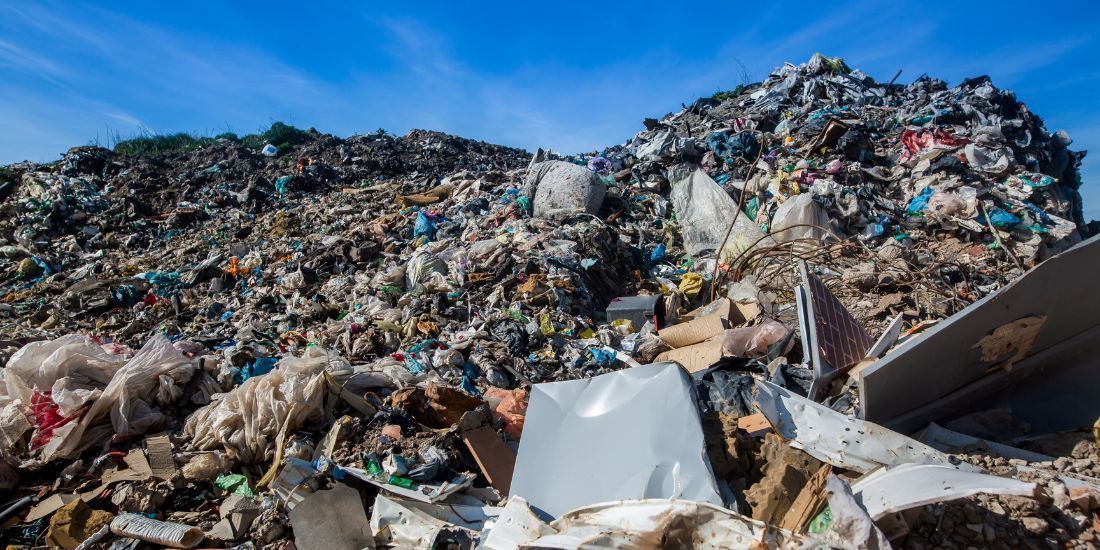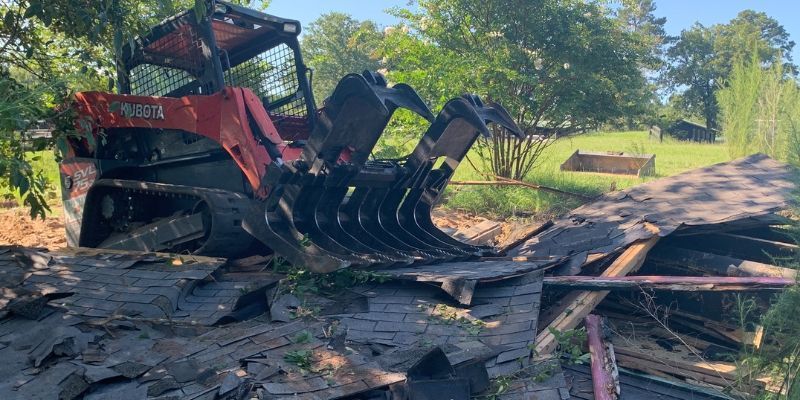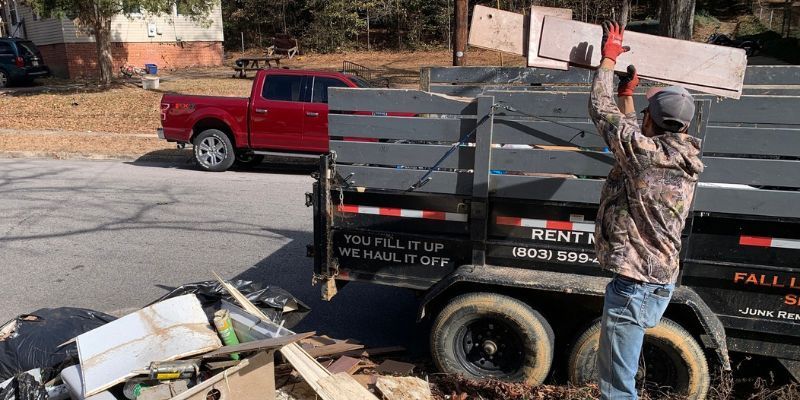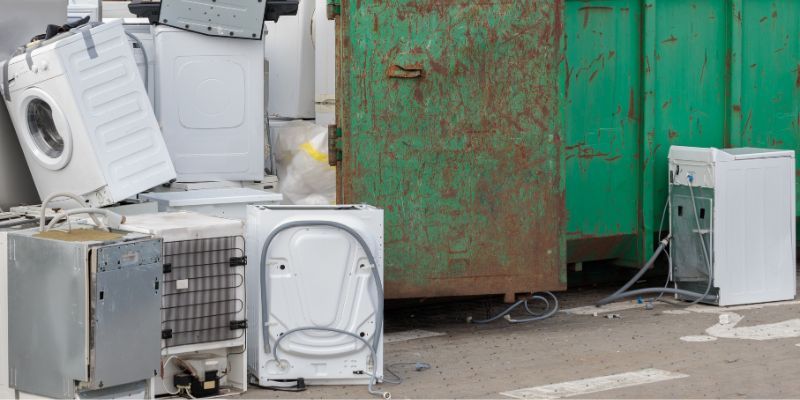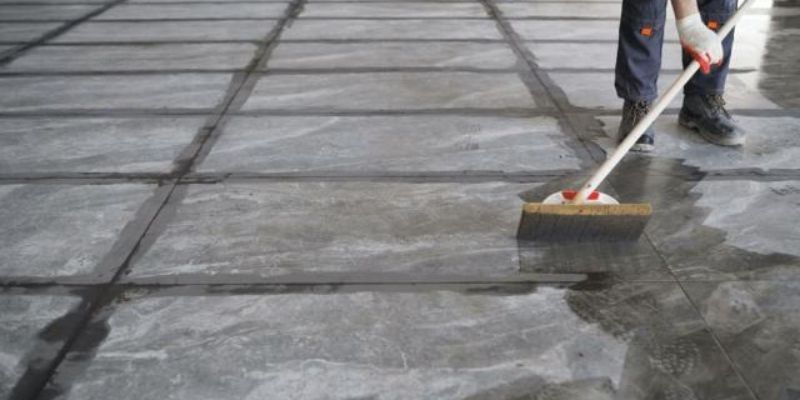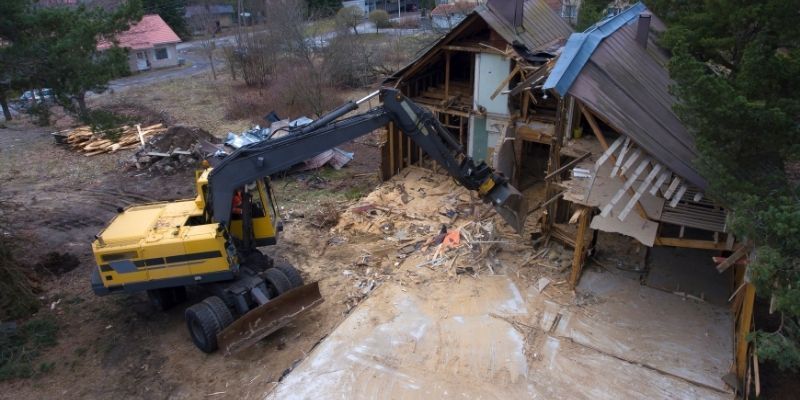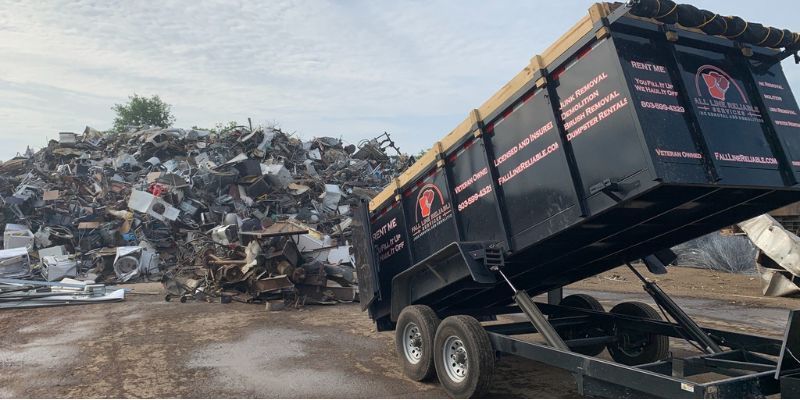How Much Does House Demolition Cost?
When it comes to house demolition, several factors can influence the cost.
These include the size and location of the house, the materials used in its construction, and any additional services needed such as asbestos removal or site preparation.
In addition to this, the type of demolition also influences the cost of demolition. For instance, light demolition costs less as compared to major demolitions since it involves more effort, resources, and tools.
In this guide, we will explore how much house demolition costs on average and what factors determine the cost of demolition. In addition, we will also explore how much the cost varies when demolition is done by yourself or by professional demolishers.
What Factors Determine the Demolition Cost?
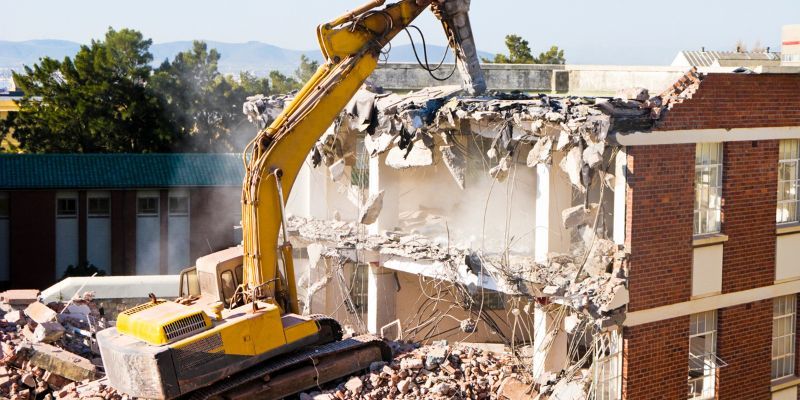
As mentioned, several factors can affect the cost of a house demolition. Just like the cost of junk removal, you should be aware of what factors generally influence the cost of demolition. Let's take a closer look at each one.
1. Size and Location of the House
The size of the house is one of the main factors that determine the cost of demolition. Larger houses generally require more time, equipment, and manpower to demolish.
Additionally, if your house is located in a remote or hard-to-reach area, it may also increase the cost as special transportation methods may be needed.
2. Materials Used in Construction
The type and quality of materials used in building your house can also impact the cost of house demolition.
If your home contains hazardous materials such as asbestos, it will require specialized removal services which can significantly add to the overall cost.
3. Accessibility
The accessibility of your house is another crucial factor to consider. If demolition equipment cannot easily access the site, it may require more manual labor and time to complete the job, resulting in a higher cost.
4. Debris Removal
After a house is demolished, there will be a significant amount of debris left behind that needs to be removed properly.
The cost of debris removal can vary based on the size of your home and the amount of debris that needs to be disposed of. It is important to budget for this cost and consider hiring a professional debris removal company to ensure proper disposal.
This cost may also include renting a dumpster or hiring a waste removal service
5. Permits and Regulations
Before any demolition work can begin, you will need to obtain permits from your local government. These permits ensure that the demolition is conducted safely and according to proper regulations. The cost of these permits can vary depending on where you live and the specific requirements for your area.
6. Type of Demolition
The type of demolition needed for your home will also affect the cost. Light demolition involves mainly tearing down interior walls and non-load-bearing structures, while heavy-duty demolition includes demolishing the entire structure from foundation to roof.
Heavy-duty demolition is typically more expensive due to the larger scale of work involved.
7. Site Preparation
Before demolition can begin, the site will need to be prepared. This may include things like removing any remaining furniture or appliances, disconnecting utilities, and securing the area for safety purposes. The cost of site preparation can vary depending on the extent of work needed.
Average Cost of House Demolition In Different States
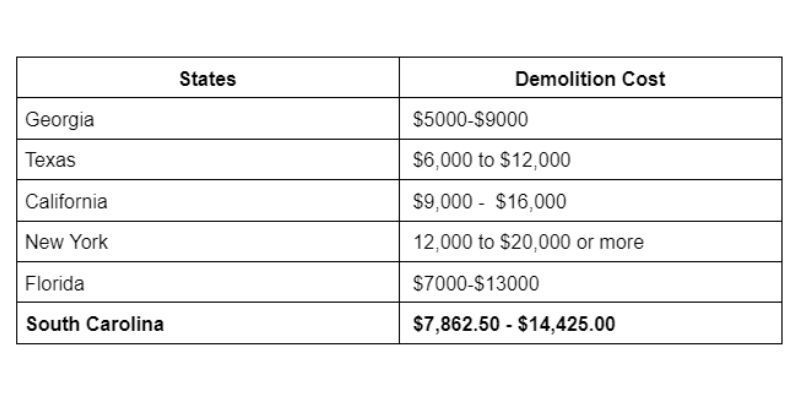
House Demolition Cost Per Square Feet
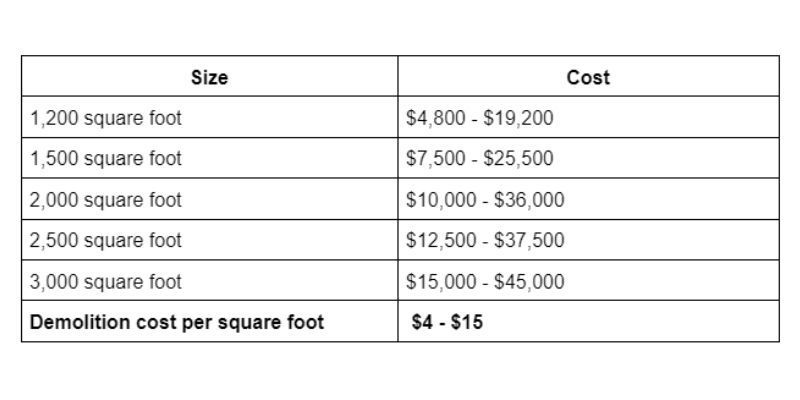
Demolition Cost of Different Parts of Home
1. Interior Wall & Dry Wall Demolition Cost
The cost of demolishing interior walls and drywall will depend on the type of wall, size, and accessibility. On average, it can range from $2 to $7 per square foot.
2. Pool Demolition Cost
If you have an old or unused pool that you want to get rid of, the cost can range from $4,000 to $15,000. This cost includes draining the pool, demolishing it, and filling in the hole.
3. Garage Demolition Cost
If you have an old garage that needs to be demolished, expect to pay around $2,000 to $6,000. This cost includes removing the structure and hauling away residential debris.
In addition to removing the structure itself, it also includes any electrical or plumbing connections.
4. Kitchen Demolition Cost
Similar to bathrooms, the cost of kitchen demolition will depend on its size and the appliances present. It can range from $1,000 to $5,000. This includes removing appliances, cabinets, and countertops.
5. Floor Demolition Cost
The cost of flooring demolition varies depending on the type of flooring and its condition. For example, removing carpet may cost around $1 to $2 per square foot while tile or hardwood flooring may cost between $3 to $6 per square foot.
6. Bathroom Demolition Cost
The cost of demolishing a bathroom will depend on its size and the fixtures present. On average, it can range from $500 to $2,000. This includes removing fixtures such as the toilet, sink, and bathtub or shower.
7. Demolition Permit Cost
Before starting any demolition project, it's important to obtain a permit from your local government. The cost of a demolition permit can range from $200 to $2,000, depending on the size and complexity of the project.
8. Removal of Debris Cost
Demolition projects often result in a large amount of debris that needs to be disposed of properly. The cost of debris removal can range from $100 for a small project to $1,000 for larger ones. This cost may also include renting a dumpster or hiring a residential waste removal service.
DIY Vs Professional Demolition Cost
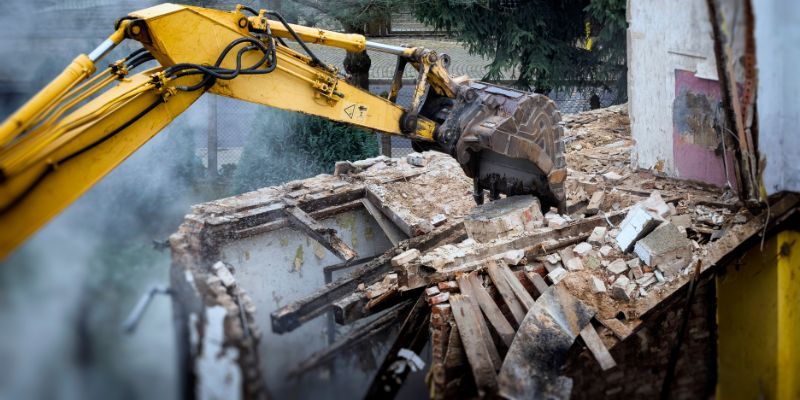
The cost difference between DIY and professional demolition can be significant, depending on the scale and complexity of the project.
For a small-scale project, such as demolishing a single wall, DIY might cost under $100 for basic junk disposal tools and proper disposal, whereas hiring professionals could range from $500 to $2,000, factoring in their expertise, safety measures, and equipment.
For larger projects, like tearing down a house, DIY costs could escalate to several thousand dollars due to equipment rental and disposal fees, while professional demolition could range between $4,000 to $15,000 or more, offering a hassle-free experience with compliance with legal and environmental regulations.
Conclusion
When it comes to determining the cost of house demolition, specific information may not always be readily available. However, it's essential to consult professional demolition services for accurate cost estimates and efficient project management.
For professional guidance on demolition projects and waste management, consider reaching out to Fall Line Reliable Services at 803-599-4329. Their expertise can provide valuable insights and assistance in navigating the complexities of demolition and garbage disposal, ultimately contributing to a smooth and well-executed project.
